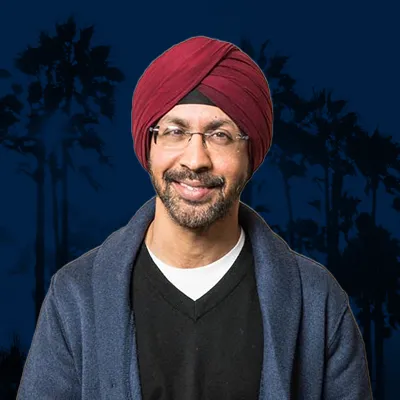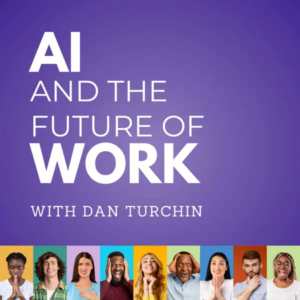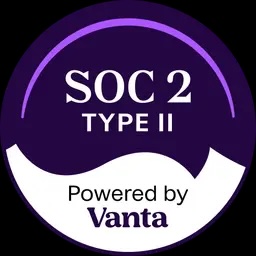AI and the Future of Work
-

Episode Number : 337
Scott Stevenson is the CEO and co-founder of Spellbook, a legal tech company transforming how attorneys review contracts
Show moreShow lessScott Stevenson is the CEO and co-founder of Spellbook, a legal tech company transforming how attorneys review contracts with AI. Since launching in 2018, Spellbook’s AI copilot has been adopted by more than 1,700 legal teams and helps review over a million contracts annually. Scott recently led the company through a $20 million Series A backed by Inovia Capital, Thomson Reuters Ventures, The Legaltech Fund, and others. Before Spellbook, he founded Mune, a startup at the intersection of music and technology, and holds a BS in Computer Engineering from Memorial University in Newfoundland and Labrador.
In this conversation, we discuss:
- Scott’s journey from building electronic instruments to launching Spellbook, the world’s first generative AI copilot for lawyers.
- Why contracts, not court cases, were the ideal entry point for legal AI and how Spellbook now helps 3,000+ legal teams review over a million contracts a year.
- How AI is expanding access to legal services by reducing costs and enabling lawyers to serve the 70% of clients who previously couldn’t afford help.
- Why AI won’t replace lawyers and how tools like Spellbook enhance human judgment rather than automate legal decisions.
- Why now may be the best time to enter the legal field as AI eliminates drudgery and creates more room for strategy and client work.
- What product-market fit really looks like and how Scott found it after testing more than 100 hypotheses before landing on a solution that clicked.
- Why the best AI products embrace controlled chaos over rigid structure and how leaning into complexity reflects how the real world actually works.
Resources:
-

Episode Number : 336
Matt Biilmann is the CEO and co-founder of Netlify, a platform that has raised over $200M to reshape
Show moreShow lessMatt Biilmann is the CEO and co-founder of Netlify, a platform that has raised over $200M to reshape how websites are built and deployed. A key figure in the open source web development community, Matt helped popularize the JAMstack architecture to improve performance and streamline developer workflows. Before launching Netlify in 2014 with Christian Bach, he built several startups and earned a degree in Musicology from the University of Copenhagen.
In this conversation, we discuss:
- How Matt Biilmann coined the term “JAMstack”, and how it redefined the architecture of the modern web
- The evolution of Netlify from a bootstrapped side project to a platform used by 6M+ developers
- Why the future of web development includes designing not just for humans but also for AI agents, with a focus on Agent Experience (AX)
- The rise of low-code creators and “vibe coders” who build sophisticated projects by prompting instead of programming
- Why the open web matters more than ever in the age of AI, and what’s at stake in the battle between open and closed platforms
- Matt’s reflections on leadership, delegation, and what still drives him after more than a decade of building tools that empower other builders
Resources:
-

Episode Number : 335
Dave Marchick is the Dean of American University’s Kogod School of Business and a seasoned leader with experience
Show moreShow lessDave Marchick is the Dean of American University’s Kogod School of Business and a seasoned leader with experience across the private, public, and nonprofit sectors. He spent over a decade as Managing Director at The Carlyle Group, where he served on the management committee and advanced the firm’s sustainability and diversity efforts. In government, he held senior roles in both the Biden and Clinton administrations, including leadership positions at the State Department, the White House, and the Development Finance Corporation. Dave directed the Center for Presidential Transition during the 2020 cycle and later launched the Transition Lab podcast and co-authored The Peaceful Transition of Power. A dedicated advocate for civil rights and historical preservation, he has served on the boards of the Holocaust Memorial Museum and the National Park Foundation. Dave holds degrees from George Washington University, the LBJ School at UT Austin, and UC San Diego.
In this conversation, we discuss:
- How Dean Dave Marchick is helping to infuse AI across the curriculum at American University’s Kogod School of Business.
- The resistance and cultural shifts required to get faculty on board with AI adoption.
- How students are learning to prompt, critique, and collaborate with AI from their first semester (and how it’s reshaping classroom dynamics).
- Why professionalism, communication, and negotiation are now prioritized as “skills of the future”.
- How Kogod is thinking about measuring the real-world impact of AI education beyond the classroom.
- Lessons from U.S. presidential transitions and what they reveal about leadership during critical moments.
Resources:
- Subscribe to the AI & The Future of Work Newsletter: https://aiandwork.beehiiv.com/subscribe
- Connect with Dave on LinkedIn: https://www.linkedin.com/in/david-marchick/
- AI fun fact article: https://www.psu.edu/news/campus-life/story/cheat-thon-contest-explores-ais-strengths-and-flaws-higher-education
- On what it was like to co-author a book with ChatGPT: https://podcasts.apple.com/us/podcast/bob-rogers-ai-expert-physicist-author-and-ceo-of-oii/id1476885647?i=1000606108950
- Other episodes mentioned in the show:
- Episode with George Sivulka [Hebbia CEO]
- Episode with Tom Wheeler [Former FCC Chairman and author of Techlash]
- Episode with Chris Caren [Turnitin CEO]
- Read Dave Marchick’s book: The Peaceful Transfer of Power: An Oral History of America’s Presidential Transitions
-

Episode Number : 334
Snehal Antani is an entrepreneur, technologist, and investor. He is the CEO and Co-founder of Horizon3, a cybersecurity
Show moreShow lessSnehal Antani is an entrepreneur, technologist, and investor. He is the CEO and Co-founder of Horizon3, a cybersecurity company using AI to deliver Red Teaming and Penetration Testing as a Service. He also serves as a Highly Qualified Expert for the U.S. Department of Defense, supporting digital transformation and data initiatives for Special Operations. Previously, he was CTO and SVP at Splunk, held CIO roles at GE Capital, and began his career as a software engineer at IBM. Snehal holds a master’s in computer science from Rensselaer Polytechnic Institute and a bachelor’s from Purdue University, and he is the inventor on 16 patents.
In this conversation, we discuss:
- Snehal Antani’s path from software engineer to CEO, and how his father’s quiet example of grit and passion continues to shape his leadership style.
- How a “LEGO blocks” approach to building skills prepared Snehal to lead, and why he believes leadership must be earned through experience.
- Why Horizon3 identifies as a data company, and how running more pen tests than the Big Four creates a powerful AI advantage.
- What “cyber-enabled economic warfare” looks like in practice, and how a small disruption in a supply chain can create massive global impact.
- How Horizon3 built an AI engine that hacked a bank in under 60 seconds, showing what’s possible when algorithms replace manual testing.
- What the future of work looks like in the AI era, with a growing divide between those with specialized expertise and trade skills and those without.
Resources:
- Subscribe to the AI & The Future of Work Newsletter: https://aiandwork.beehiiv.com/subscribe
- Connect with Snehal on LinkedIn: https://www.linkedin.com/in/snehalantani/
- AI fun fact article: https://venturebeat.com/security/ai-vs-endpoint-attacks-what-security-leaders-must-know-to-stay-ahead/
- On the New Definition of Work: https://podcasts.apple.com/us/podcast/dr-john-boudreau-future-of-work-pioneer-and/id1476885647?i=1000633854079
-

Episode Number : 333
Gou Rao is a serial entrepreneur and the co-founder of NeuBird, where he’s building Hawkeye—an AI-powered site reliability
Show moreShow lessGou Rao is a serial entrepreneur and the co-founder of NeuBird, where he’s building Hawkeye—an AI-powered site reliability engineer designed to identify, diagnose, and resolve IT infrastructure issues. He previously co-founded Portworx, which was acquired by Pure Storage for $370 million in 2020. In 2024, NeuBird raised a $22.5 million seed extension from M12, Microsoft’s venture arm, following a $22 million seed round led by Mayfield, Stepstone Group, and Prosperity7 Ventures. Gou holds a bachelor’s degree in Computer Engineering from Bangalore University and a master’s degree from the University of Pennsylvania.
In this conversation, we discuss:
- Gou Rao’s journey from late-night support calls to co-founding NeuBird and building Hawkeye, an AI-powered site reliability engineer.
- Why diagnosing IT issues is 99% of the problem—and how Hawkeye helps SREs move from noise to actionable insight in minutes.
- The shift from chatbots to agentic systems—and why reasoning, not just automation, is the next frontier for enterprise AI.
- How AI can reduce burnout by eliminating repetitive incident response tasks, freeing teams to focus on creativity and automation.
- The importance of transparency, explainability, and human oversight in deploying AI systems with agency.
- Gou’s reflections on entrepreneurship, including why “mistakes are an asset” and how jumping into the unknown can lead to your biggest breakthroughs.
Resources:
- Subscribe to the AI & The Future of Work Newsletter: https://aiandwork.beehiiv.com/subscribe
- Connect with Gou on LinkedIn: https://www.linkedin.com/in/gouthamrao/
- AI fun fact article: https://www.hrdive.com/news/anthropic-report-AI-software-engineers-automation-augmentation/739833/
- On becoming an investor and discovering amazing companies: https://www.buzzsprout.com/520474/episodes/7446373
-

Episode Number : 332
Ravi Malick is the Global CIO at Box, where he leads IT strategy, compliance, and customer advocacy for
Show moreShow lessRavi Malick is the Global CIO at Box, where he leads IT strategy, compliance, and customer advocacy for the enterprise content management platform. Before joining Box, he served as SVP & CIO at Vistra Corp., where he oversaw the integration of three major acquisitions that more than doubled the company’s size. Earlier in his career, he held leadership roles at Energy Future Holdings, including VP of Business Technology at TXU Energy. Ravi earned a BA in Political Science from Brown University and remains active in philanthropic efforts outside of work.
In this conversation, we discuss:
- Ravi Malick’s nonlinear path from investment banking and consulting to becoming Global CIO at Box—and how each chapter shaped his leadership style.
- What makes Box’s “people-first” culture stand out in Silicon Valley and why Ravi believes authenticity and inclusion are key to long-term success.
- The challenges of leading IT at a company with 3,000 tech-savvy employees—and how Ravi balances innovation with governance.
- How he’s approaching AI adoption internally, from quick wins to long-term strategy, while keeping a sharp focus on business outcomes.
- What the “agentic workforce” could mean for scalability, productivity, and the structure of tomorrow’s teams.
- How Ravi sees the future of work: multi-role careers, voice-first workflows, and AI-powered teams built around passion and outcomes.
Resources:
- Subscribe to the AI & The Future of Work Newsletter: https://aiandwork.beehiiv.com/subscribe
- Connect with Ravi on LinkedIn: https://www.linkedin.com/in/ravimalick/
- AI fun fact article: https://www.engineering.com/rip-saas-long-live-ai-as-a-service/
- On how AI supports thousands of employees at a rapidly growing global company: https://podcasts.apple.com/us/podcast/parul-saini-ubers-global-head-of-enterprise-apps/id1476885647?i=1000599377300
-

Episode Number : 331
Rafie Faruq is a serial entrepreneur and the co-founder of Genie, a platform launched in 2017 to make
Show moreShow lessRafie Faruq is a serial entrepreneur and the co-founder of Genie, a platform launched in 2017 to make high-quality legal documents accessible through open-source tools.
Since then, Genie has served over 100,000 users across 120 jurisdictions and recently raised an $18M Series A from Google Ventures and Khosla Ventures. Rafie holds an MSc in Machine Learning, has advised the Law Policy Commission, contributed to the Law Society, and represented the Ministry of Justice on international trade missions.
He also teaches meditation and is a mentor to many seeking meaning and clarity in life.
In this conversation, we discuss:
- Rafie’s unconventional path from bond trader to AI entrepreneur and what drove him to apply machine learning to legal access.
- How his early research on generative models led to new ways of thinking about document creation and automation.
- Why he believes the current definition of intelligence is outdated—and what a more human-centered version could look like.
- The role of emotional intelligence, purpose, and social connection in a future shaped by automation.
- What it means to build a business rooted in spiritual principles—and how Rafie applies concepts like rhythm, balance, and nature to team building.
- His reflections on power, responsibility, and why founders should see themselves as stewards of broader societal change.
Resources:
- Subscribe to the AI & The Future of Work Newsletter: https://aiandwork.beehiiv.com/subscribe
- Connect with Rafie on LinkedIn: https://www.linkedin.com/in/rfaruq/
- AI fun fact article: https://www.mixonline.com/blog/mix-blog-who-wrote-that-ai-and-copyright-law
- On Entrepreneurship in Emerging Markets: https://podcasts.apple.com/us/podcast/linda-rottenberg-endeavor-co-founder-and-ceo/id1476885647?i=1000517670973
-

Episode Number : 330
Dr. Craig Wheeler is Professor Emeritus of Astronomy at the University of Texas at Austin and a former
Show moreShow lessDr. Craig Wheeler is Professor Emeritus of Astronomy at the University of Texas at Austin and a former department chair. He has published nearly 400 scientific papers, written books on supernovae, and authored two novels. A frequent speaker and award-winning educator, Dr. Wheeler has served on advisory committees for the NSF, NASA, and the National Research Council. His research explores topics from exploding stars and black holes to the technological future of humanity.
In this conversation, we discuss:
- How supernovae and black holes shaped Dr. Craig Wheeler’s career—and what they reveal about the universe’s expansion.
- The singularity debate: Will AI surpass human intelligence, and if so, what happens next?
- Machine consciousness vs. human intelligence—why the future of AI might be more alien than we expect.
- The rise of AI in leadership roles—could AI replace CEOs, and what does that mean for the future of work?
- The ethics of AI-driven decision-making, from hiring to autonomous weapons, and the challenges of regulation.
- Why exponential technological growth is inevitable—and how humanity can prepare for its accelerating impact.
Resources:
- Subscribe to the AI & The Future of Work Newsletter: https://aiandwork.beehiiv.com/subscribe
- Connect with J. Craig Wheeler on LinkedIn: https://www.linkedin.com/in/j-craig-wheeler-94024a97/
- AI fun fact article: https://www.popularmechanics.com/technology/robots/a63057078/when-the-singularity-will-happen/
- On AI Job Creation & Predictions for AI in the Enterprise: https://www.buzzsprout.com/520474/episodes/15873523
-

Episode Number : 329
Dheeraj Pandey is a visionary entrepreneur and philanthropist best known for founding and leading Nutanix from its inception
Show moreShow lessDheeraj Pandey is a visionary entrepreneur and philanthropist best known for founding and leading Nutanix from its inception to becoming a publicly traded company valued at approximately $16.5 billion on NASDAQ. In 2020, he launched DevRev, an agentic AI company focused on unifying data to enhance customer experiences, securing over $100 million in funding from Khosla Ventures. Beyond his contributions to technology, Dheeraj co-founded Param Hansa with his wife, Swapna, to advance human life through science and technology. He holds a Computer Science and Engineering degree from IIT Kanpur and a master’s in Computer Science from UT Austin.
In this conversation, we discuss:
- Why data is the backbone of AI and how DevRev is leveraging knowledge graphs to transform customer support and product management.
- The evolution of enterprise AI—why businesses must integrate AI with human workflows rather than replace them.
- The future of customer support—how DevRev combines real-time conversations with ticketing systems to improve response times and reduce inefficiencies.
- The ethical challenges of AI adoption—how bias, security, and machine reliability shape the future of AI-driven business operations.
- How DevRev raised over $100M, including an unconventional approach using blockchain and decentralized funding models.
- Dheeraj’s vision for AI’s next frontier—why the real challenge isn’t intelligence, but making AI work seamlessly with human decision-making.
Resources:
- Subscribe to the AI & The Future of Work Newsletter: https://aiandwork.beehiiv.com/subscribe
- Connect with Dheeraj Pandey on LinkedIn: https://www.linkedin.com/in/dpandey
- AI fun fact article: https://hackernoon.com/next-time-you-hear-someone-say-ai-will-replace-call-center-agents-run
- On The Path To 500M+ YouTube views: https://podcasts.apple.com/us/podcast/301-william-osman-on-the-path-to-500m-youtube-views/id1476885647?i=1000668882327
-

Episode Number : 328
How has the dynamic between employees and employers shifted over the past 18 months? And what does the
Show moreShow lessHow has the dynamic between employees and employers shifted over the past 18 months? And what does the future of work look like in a world defined by AI?
In this special live episode, recorded at Transform—the conference at the intersection of the People space and the tech industry—Dan Turchin sits down with Bryan Power, Head of People at Nextdoor.
Bryan took the stage at Transform to share insights on “The Power Shift: Navigating the New Employer-Employee Dynamic,” where he explored how evolving expectations are reshaping the workforce.
Bryan has spent his career shaping workplace culture at some of the most iconic tech companies, including Google, Square, and Yahoo. Now, as the leader of People Operations at Nextdoor, he’s at the forefront of redefining work in an era of rapid change.
In this conversation, Bryan and Dan discuss topics such as:
- How the employee-employer relationship is evolving—why job loyalty is declining and what it means for the future of work.
- The rise of hybrid work and its impact on company culture—how Nextdoor navigates the balance between flexibility and connection.
- Why culture must be intentional—lessons from Google, Square, Yahoo, and Nextdoor on shaping a workplace where people thrive.
- The role of AI in HR and leadership—how AI is disrupting traditional people operations and what leaders must do to stay ahead.
- Bryan’s biggest leadership lessons—what he’s learned from building teams at some of the most influential tech companies.
- The future of HR in an AI-powered world—how the Chief People Officer role is shifting as AI and automation reshape the workplace.
Resources -

Episode Number : 327
Scott Wharton is a visionary entrepreneur and CEO making waves in the solar industry as the leader of
Show moreShow lessScott Wharton is a visionary entrepreneur and CEO making waves in the solar industry as the leader of Tandem PV, where he’s developing solar cells that are 30% more efficient than current options. Previously, he spent eight years at Logitech as a general manager, revolutionizing how businesses use consumer tech for productivity and collaboration. Before that, he was the CEO of Vidtel, which was acquired by Fidelity Investments in 2013. A bold thinker and risk-taker, Scott is known for his leadership and innovation across industries. He holds an MBA from Yale and a bachelor’s degree from Binghamton University.
In this conversation, we discuss:
- How solar energy has become the cheapest and most scalable power source —and why most people haven’t caught up to this reality.
- The breakthrough potential of perovskite solar cells and why they’re set to replace silicon as the industry standard.
- Why the U.S. must invest in solar manufacturing – and how bringing production back from China strengthens energy security.
- The evolving synergy between solar and battery storage —how new advancements are making 24/7 renewable power a reality.
- Common myths about solar’s limitations and why concerns about cost, reliability, and land use no longer hold up.
- Scott’s journey from leading video conferencing at Logitech to revolutionizing the solar industry – and what motivated him to take on this challenge.
Resources:
- Subscribe to the AI & The Future of Work Newsletter: https://aiandwork.beehiiv.com/subscribe
- Connect with Scott Wharton on LinkedIn: https://www.linkedin.com/in/scottwharton/
- AI fun fact article: https://www.cnbc.com/2024/11/23/data-centers-powering-ai-could-use-more-electricity-than-entire-cities.html
- On how AI can be used to provide fact-based impartial answers to scientific questions: https://www.buzzsprout.com/520474/episodes/11574063
-

Episode Number : 326
Mona Sabet is the co-author of Sail to Scale: Steering Startups Clear of Mistakes from Launch to Exit and currently
Show moreShow lessMona Sabet is the co-author of Sail to Scale: Steering Startups Clear of Mistakes from Launch to Exit and currently serves as SVP, Strategy, Projects, and Operations at GCG. With a track record of driving growth and strategic transformations, she has held executive roles at VulcanForms, UserTesting, and Cadence Design Systems. At UserTesting, she played a pivotal role in securing $100M in funding, leading acquisitions, taking the company public, and negotiating its $1.3B sale to Thoma Bravo. Beyond her corporate leadership, Mona is a passionate advocate for women in tech, law, and policy, having co-founded ChIPsNetwork.org and leading HiPower, a community dedicated to empowering executive women shaping the future of technology.
In this conversation, we discuss:
- The critical mistakes startups make at different growth stages—Mona shares insights from Sail to Scale on why companies struggle to scale and how to avoid common pitfalls.
- How founders should “fire themselves” to scale effectively—Why transitioning from founder to CEO requires a mindset shift, and the biggest mistakes leaders make in this process.
- The AI bubble: hype vs. reality—Mona explains why overfunding in AI-first companies mirrors past tech bubbles and what it means for the future of the industry.
- Why acquisitions should be a long-term strategy, not a last-minute decision—The importance of planning exits early and why companies that wait too long often fail to sell at the right valuation.
- The evolving landscape of M&A and IPOs—How companies can differentiate themselves in a crowded market of late-stage startups waiting for an exit.
- The unseen biases keeping women out of leadership—Mona’s perspective on why brand bias impacts diversity in tech and what leaders can do to create real change.
Resources:
-

Episode Number : 325
Dr. Brandeis Marshall is a leading advocate for responsible data science and the CEO of Dataedx Group, a
Show moreShow lessDr. Brandeis Marshall is a leading advocate for responsible data science and the CEO of Dataedx Group, a data ethics and learning development agency dedicated to helping teams identify and address discrimination in data. Previously, she was a professor of computer science at Spelman College and a faculty associate at Harvard. Dr. Marshall holds a master’s and Ph.D. in computer science from Rensselaer Polytechnic Institute (RPI).
In this conversation, we discuss:
- Why AI-powered companies should be regulated like scientific entities—and the hidden ways they optimize human behavior.
- The role of data ethics in AI—how companies can prevent bias and why everyone in the data pipeline is responsible for ethical decision-making.
- Why most businesses struggle with AI adoption—Brandeis explains how companies can bridge the AI gap and align data strategies with real business impact.
- The future of healthcare data—how a patient-owned, portable medical record system could revolutionize access and transparency.
- How AI can be leveraged to expose systemic inequalities and provide better opportunities for marginalized communities.
- Why AI should be seen as a support tool, not a replacement—Brandeis shares how AI can help neurodivergent individuals and enhance human decision-making.
Resources:
-

Episode Number : 323
SC Moatti, founder of Mighty Capital and Products That Count, is one of the most dynamic venture capitalists
Show moreShow lessSC Moatti, founder of Mighty Capital and Products That Count, is one of the most dynamic venture capitalists and product leaders in Silicon Valley. As an early investor in PeopleReign, SC combines her investment expertise with a passion for advancing product leadership globally. She is the author of the award-winning book Mobilize and a sought-after keynote speaker and lecturer at Columbia and Stanford business schools. Before her venture capital career, SC was an instrumental product leader in the early days of mobile, driving innovation at companies like Electronic Arts, Nokia Labs, and Facebook.
In this conversation, we discuss:
- SC Moatti’s journey from studying electrical engineering in Paris to becoming a tech entrepreneur and venture capitalist in Silicon Valley.
- Why founding Mighty Capital was the hardest challenge SC has faced and how applying product thinking helped her reshape the venture capital landscape.
- The unique due diligence process at Mighty Capital, focusing on high-performing teams, ambitious traction, and fair, long-term partnerships.
- How Products That Count grew from a small community into a global network of over half a million product leaders and its influence on the industry.
- The evolving role of product managers in an AI-first world and how professionals can adapt to stay ahead in this rapidly changing environment.
- The ethical responsibilities of product leaders, from managing unintended consequences of AI to maintaining trust and transparency in product development.
Resources:
-

Episode Number : 322
George Sivulka, hailed as a wunderkind by Peter Thiel, is the founder of Hebbia, a groundbreaking AI company
Show moreShow lessGeorge Sivulka, hailed as a wunderkind by Peter Thiel, is the founder of Hebbia, a groundbreaking AI company revolutionizing financial research. Having worked at NASA as a teenager, he later earned a math degree from Stanford in just 2.5 years. George has secured $130M in funding for Hebbia at a $700M valuation, backed by Andreessen Horowitz, Index Ventures, Google Ventures, and Thiel himself. Hebbia’s AI platform, trusted by firms like Centerview Partners and Charlesbank, has driven a 15x revenue growth in 18 months by pioneering RAG techniques that ensure LLM outputs remain within company-sanctioned data.
In this conversation, we discuss:
- How Hebbia is reshaping financial research with retrieval-augmented generation (RAG).
- The leap from academia to entrepreneurship—how George Sivulka turned research into real-world impact.
- The expanding role of AI in high-stakes industries where precision is critical.
- The ethical challenges of AI and how transparency can make or break trust.
- Why AI agents will change knowledge work—but not in the way you might think.
- The future of AI-powered research and its impact on decision-making.
Resources:
- Subscribe to the AI & The Future of Work Newsletter: https://aiandwork.beehiiv.com/subscribe
Connect with Sivulka on LinkedIn: https://www.linkedin.com/in/sivulka/ - AI fun fact article: https://www.chicagobooth.edu/review/what-ai-sees-market-that-you-might-not
- On How AI-Powered Writing is reshaping Enterprise Content Creation: https://podcasts.apple.com/us/podcast/may-habib-ceo-of-writer-discusses-llms-and-the/id1476885647?i=1000628256870
-

Episode Number : 321
Megh Gautam, Chief Product Officer at Crunchbase, is one of the sharpest product minds in Silicon Valley. With
Show moreShow lessMegh Gautam, Chief Product Officer at Crunchbase, is one of the sharpest product minds in Silicon Valley. With a track record that includes leadership roles as Head of Product at Twilio and Director of Product Management at Dropbox and Hearsay Systems, Megh has honed his expertise in driving innovation and growth. An active angel investor, Megh combines his industry insights with a passion for supporting emerging talent and ideas. He holds a Master of Science in Management Science and Engineering from Stanford University and a Bachelor’s degree in Information Technology from the National Institute of Technology Durgapur in India.
In this conversation, we discuss:
- How Crunchbase is leveraging AI and proprietary data to provide predictive insights for startups and investors.
- The balance between enhancing data accuracy and maintaining ethical transparency in AI-driven decision-making.
- The emergence of AI marketplaces that empower creators to monetize their content while preserving ownership rights.
- Why trust and attention are the scarcest resources today, and how Crunchbase ensures both through innovation and responsibility.
- The importance of skepticism in the age of LLMs and how to foster critical thinking in a generation growing up with AI.
- Megh’s reflections on his journey as a product leader and how mentorship has shaped his career at top tech companies like Twilio, Dropbox, and Hearsay Systems.
Resources:
- Subscribe to the AI & The Future of Work Newsletter: https://aiandwork.beehiiv.com/subscribe
- Connect with Megh on LinkedIn: https://www.linkedin.com/in/meghbartma/
- AI fun fact article: https://pressgazette.co.uk/platforms/news-publisher-ai-deals-lawsuits-openai-google/
- On how SambaNova became the first generative AI unicorn and accelerated LLM advancements with open-source AI: https://www.buzzsprout.com/520474/episodes/13151659
-

Episode Number : 320
Josh Drean is a leading voice in the future of work community, known for his advocacy on bringing
Show moreShow lessJosh Drean is a leading voice in the future of work community, known for his advocacy on bringing more humanness into the workplace. As Co-founder of the Work3 Institute, Josh specializes in the intersection of employment and emerging technologies, including AI, blockchain, and AR/VR. He is the co-author, along with Deborah Perry Piscione, of the forthcoming book “EMPLOYMENT IS DEAD: How Disruptive Technologies Are Revolutionizing the Way We Work”, to be published by the Harvard Business Review Press. Josh holds a master’s degree from Harvard and has studied I/O Psychology. His insights have appeared in renowned publications such as the Harvard Business Review, Forbes, and Fast Company, and he has been featured on The Today Show, NBC, and FOX Business.
In this conversation, we discuss:
- The challenges of traditional work models and why they no longer serve the needs of today’s workforce.
- How the next generation is reshaping expectations around job security, compensation, and career fulfillment.
- A fresh take on decentralized work and how it could change the way we collaborate and earn.
- What contribution-based compensation could look like and how it aligns with shifting values in the workplace.
- The evolving role of AI in our careers and why adapting to new technology is essential for staying competitive.
- Insights on how companies can attract and retain the best talent by prioritizing employee experience in a rapidly changing world.
Resources
Subscribe to the AI & The Future of Work Newsletter – https://aiandwork.beehiiv.com/subscribe
Connect with Josh on LinkedIn – https://www.linkedin.com/in/joshdrean/
AI fun fact article – https://www.semafor.com/article/12/02/2024/employee-lawsuit-accuses-apple-of-spying-on-its-workers
On How to Measure the Business Impact of Machine Learning and why all AI isn’t Generative AI – https://www.buzzsprout.com/520474/episodes/14464391
-

Episode Number : 319
Marcus “Bellringer” Bell is an award-winning music producer, songwriter, musician, singer, activist, and entrepreneur. He has marketed, promoted,
Show moreShow lessMarcus “Bellringer” Bell is an award-winning music producer, songwriter, musician, singer, activist, and entrepreneur. He has marketed, promoted, produced, remixed, and written for iconic artists like Nicki Minaj, Snoop Dogg, and Timbaland, as well as for major brands like Sony Music, HBO, Netflix, and Amazon. As the CEO of Bellringer Productions,
Marcus oversees a music sync, licensing, and production company with a catalog of over 10,000 songs and 300 recording artists. His music has been featured by worldwide brands, including McDonald’s and General Mills, and even performed by Beyoncé during her On the Run II tour with Jay-Z. Marcus is also the Amazon number-one bestselling author of Bellringer Branding Bible: The 5 Musician Branding Principles for Singers, Rappers, DJs, Music Producers, Composers, Writers, and Recording Artists. His contributions to music and branding make him a trailblazer in the industry.
In this conversation, we discuss:
- Marcus Bellringer’s journey as a music producer and technologist, blending creativity with AI to transform the music industry.
- How AI tools have enabled Marcus to create over 15,000 songs in just six months, surpassing a lifetime of work without AI.
- The creation of Ravyn Lyte, North America’s first AI music artist, and how it represents innovation in music creation and mental health advocacy.
- AI’s role in the entertainment industry, addressing fears and shifting the narrative from threat to opportunity.
- The humanistic approach to AI, emphasizing the importance of emotional connection, storytelling, and compassion in the age of technology.
- Practical advice for creatives navigating the intersection of humanity and AI, including tools and strategies for finding meaning and purpose.
Resources:
- Subscribe to the AI & The Future of Work Newsletter: https://aiandwork.beehiiv.com/subscribe
- Connect with Marcus on LinkedIn: https://www.linkedin.com/in/marcusbellringer/
- AI fun fact article: https://techxplore.com/news/2024-11-artificial-intelligence-threat-music.html
- Writer CEO May Habib on LLMs and the Future of Co-Pilots for Content Generation with AI: https://podcasts.apple.com/us/podcast/may-habib-ceo-of-writer-discusses-llms-and-the/id1476885647?i=1000628256870
-

Episode Number : 318
Prakash Arunkundrum is the Chief Operating Officer at Logitech, a $14 billion market cap company with over 7,300
Show moreShow lessPrakash Arunkundrum is the Chief Operating Officer at Logitech, a $14 billion market cap company with over 7,300 employees globally. With a broad range of responsibilities, Prakash oversees the company’s operations, including global manufacturing, supply chain, customer experience, and quality operations. He also serves as General Manager of one of Logitech’s business units and leads the strategy for the company’s environmental sustainability initiatives. Prakash, who joined Logitech in 2015, has a rich background in management consulting, having held executive positions at Kearney and PricewaterhouseCoopers. He is also an architect of Logitech’s AI strategy and a sought-after speaker on AI and the future of computing.
In this conversation, we discuss:
- How Logitech is positioned at the intersection of AI and daily life, providing the input layer for AI models through audio, video, and content.
- Logitech’s commitment to sustainability, focusing on reducing the environmental impact of devices and using AI to optimize energy efficiency.
- The potential of AI to automate repetitive tasks, allowing humans to focus on creative and intuitive work.
- The philosophy of responsible AI, emphasizing fairness, transparency, and accountability in its development.
- The global culture at Logitech that fosters innovation, diversity, and seamless user experiences.
- Prakash’s leadership style as a pragmatic strategist who values data, empathy, and people-first results.
Resources
Subscribe to the AI & The Future of Work Newsletter: https://aiandwork.beehiiv.com/subscribe
Connect with Prakash on LinkedIn: https://www.linkedin.com/in/prakasharunkundrum/
On Generative AI Businesses That Are Getting Investor Dollars: https://podcasts.apple.com/us/podcast/naomi-and-derek-investors-at-menlo-ventures-on/id1476885647?i=1000654677763
-

Episode Number : 316
Punit Soni is the CEO of Suki, a voice-based digital assistant revolutionizing clinician-patient communication. Under his leadership, Suki
Show moreShow lessPunit Soni is the CEO of Suki, a voice-based digital assistant revolutionizing clinician-patient communication. Under his leadership, Suki has raised $165 million, including a recent $70 million in Series D funding. Punit is also a prolific angel investor and previously served as Chief Product Officer at Flipkart, India’s largest e-commerce company. His career includes significant roles in tech leadership at Google and Motorola Mobility. Punit holds an MBA from Wharton and a Master’s in Electrical Engineering from the University of Wyoming.
In this conversation, we discuss:
- The impact of AI on healthcare and its potential to reshape the industry.
- Punit’s vision for a decentralized and more efficient healthcare system powered by AI.
- The shift from traditional interfaces to voice-based, ambient AI interactions in healthcare.
- How Suki is making clinical documentation and administrative tasks more efficient for clinicians.
- The future of healthcare tech as an invisible assistant, allowing clinicians to focus on patient care.
- The importance of transparency in AI-driven healthcare technologies.
Resources
























